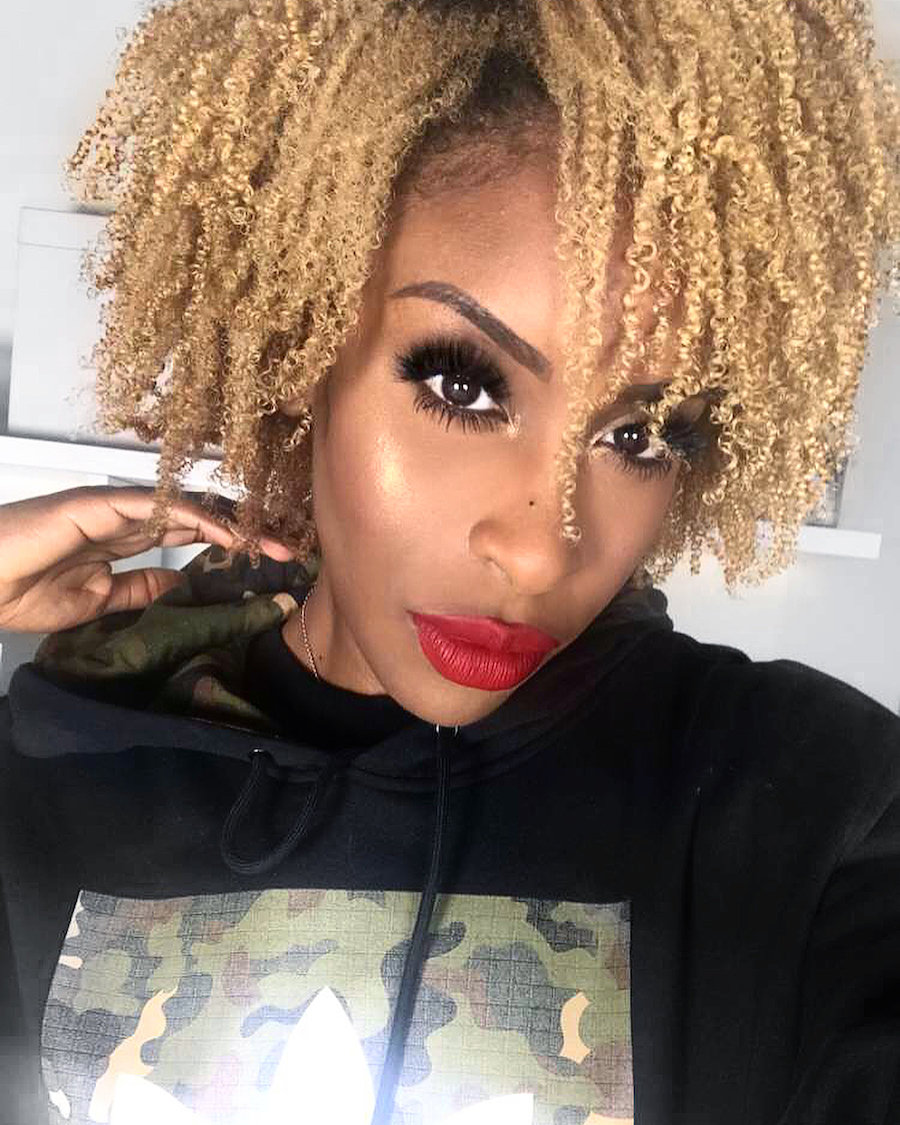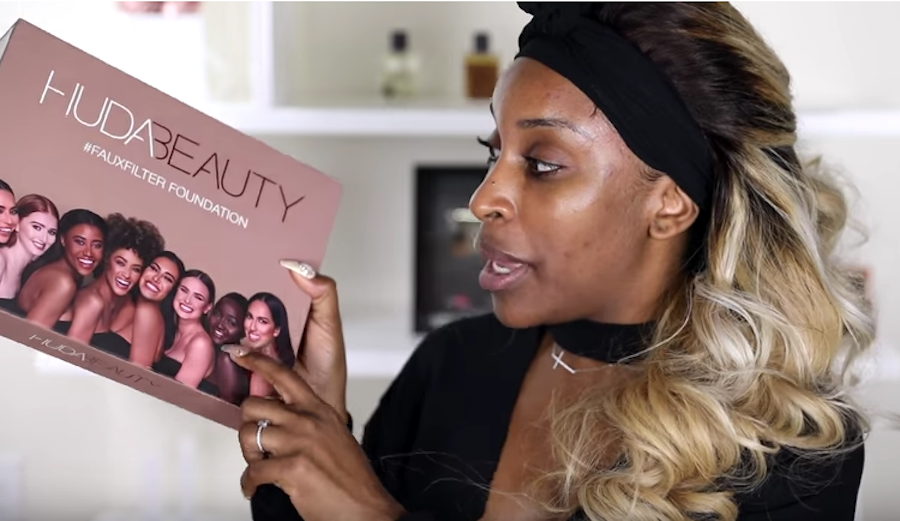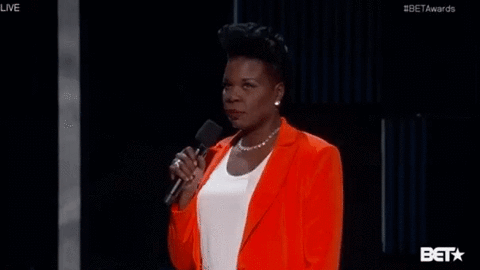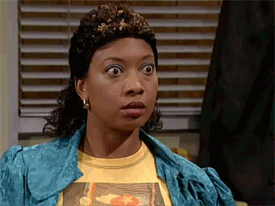YouTuber Jackie Aina will fearlessly point out diversity flaws when no one else is willing to. That's why she's a hero for many women of color who love makeup but don't always feel included.
So it wasn't surprising that she did NOT hold back when she tried Huda Beauty's beloved Faux Filter foundation. The brand is constantly praised for its diverse foundation range, but Aina suspects that dedication to inclusion isn't so genuine.
Now, after doing our own research, we kind of agree with her.
Aina was already hesitant to feature Huda Beauty products on her channel, simply because she questioned Huda Kattan's attitude toward deep-complected people.

"The Huda Beauty Faux Filter foundation just launched a couple weeks ago, and everyone’s raving about it," she said in her review. "I have no doubts that this is probably a really phenomenal product. I like Huda. I think she’s really nice and I think [her sister] Mona’s nice, too."
However, Aina also said she has "a hard time distinguishing when someone really truly does celebrate diversity and when they are pandering."
Aina immediately had some issues when the brand announced its 30-shade foundation range.

"That’s amazing — but are you going to put THESE women on your Instagram page, though?" she asked as she pointed to the deepest-complected women on the foundation's packaging. "The women that are darker than tan? The women that are darker than Beyonce?”
And she's not the only person noting Kattan's apparently problematic diversity — other women of color have also expressed concerns about the lack of representation on her Instagram page, despite her outward dedication to inclusion.
Tweets from Black women speaking out about Kattan's exclusion of deep skin tones date back long before Aina discussed the product.
This discussion was taking place YEARS before Kattan faced allegations of copying Fenty Beauty's foundation range (although, to be very clear, there is literally ZERO PROOF that the Fenty claims are true).
This one from May 2017 notes that Black women haven't been feeling the love from Huda Beauty for quite some time now.
And they've been posting the receipts to back up their distrust.
Even non-Black beauty influencer Thomas Halbert said he was removed from Huda Beauty's PR list when he called the brand out for its exclusionary practices.
To be honest, I hadn't seen any proof of racism from the brand or from Kattan herself. In fact, I defended the brand when it was accused of copying Fenty Beauty.
Side note: I don't think Huda Beauty's foundation range was a copycat — but if other brands *do* decide to copy Fenty Beauty's 40 shades, then so be it. The more options for women of color, the merrier.
But as a Black woman myself, I know what it's like to speak and not feel heard — so I scrolled through Kattan's Instagram and looked for dark-skinned people through the last five months of posts. The results were... interesting.

Just because you don't notice or feel something happening doesn't mean it's not true. This is a case in point.
I started back in June. Only five out of 229 posts feature people with dark complexions. And I saw *exactly* what Black women meant when they said it seemed as if Kattan only featured them for jokes.
Three of those five posts were for comedy — not for showcasing Black artists' skills or beauty. That's suspect AF.
Kattan is undoubtedly a woman of color, yet seems to favor the lighter, more celebrated side of the melanin spectrum. It's possible for a person of color to suffer from and perpetuate colorism themselves — so her Middle Eastern heritage doesn't exempt her from these question marks we're drawing.
In July, Kattan's 249 Instagram posts only included three dark-skinned people — and the nature of those posts wasn't much better than it was in June.
All three of the deeper-toned women featured during this month underwent drastic beauty transformations. Two thirds of those are videos of Black women who are burn victims (of course, people who are burn survivors are beautiful just as they are and deserve to be showcased in all of their glory).
But I think it still says a lot that in all of July's 31 days, basically the only dark-skinned people shown were people who are burn victims. That decision feels more like a ploy to show what Huda Beauty can "do" as opposed to a true uplifting of all dark-skinned people.
In August, the account featured seven dark-complected people in a total of 227 posts.
In September, that number dropped again — there were three deep-complected people in 249 posts.
But in October — the month Kattan's foundation dropped — 13 out of 297 posts included darker-skinned people.
Hold the applause though and stay with me.
After counting up the receipts, I now find myself having the same hesitations as Aina.

"I wanna know if you just want the coin or if you really genuinely are trying to be a part of this movement, ” Aina said in her video — and now I'm asking myself the same question. Racism and exclusion aside, there's one thing I know for sure: If people are confused about a brand's practices, it's because the brand purposely left things blurry enough to be confused.
Care to clear this up, Kattan? Your products are cute, but what's really good?
Black women are watching you, and we only spend coin where we're genuinely wanted and celebrated. We're not going to be grateful for 30 shades alone; you've got to show us more than that.
Diversity is about more than mere inclusion.
The quality and motivation behind that inclusion counts, too. This critique is not "complaining," for which Jackie Aina's constantly accused. If you want darker women's money, then we deserve to ask about how we're being represented by *your* brand.
A brand pushing darker people aside *until* there's financial opportunity says a lot about how much we are valued. Do better, Kattan. We know you can, and if you think we're going to be your customers, then that's exactly what we deserve.




